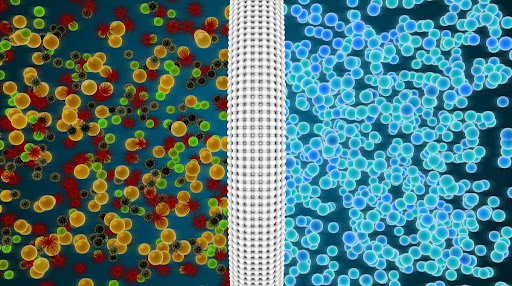
Indoor air quality has become an increasingly important metric for commercial properties. Particles like dust, dirt, pollen, mold spores, and bacteria can become concentrated in HVAC systems, which can dramatically impact everyone breathing the air. For sensitive individuals, including the elderly and those with asthma and a variety of other underlying respiratory and health conditions, this issue is of particular importance.
Fortunately, there are options available that can help you improve your air quality. Air scrubbers and air filters can seriously reduce pollutant levels, effectively cleaning the air as it passes through your HVAC system. Here’s how these two methods work, including the air filter and air scrubber effect on HVAC.
Air Filters
Air filters are usually installed in your HVAC system, forcing air to pass through them in order to capture any particles. While many filters are available on the market, the most effective are HEPA filters, which catch particles as small as 0.3 microns. HEPA air filters capture up to 99.97% of particulates.
Because HEPA air filters are so dense, they can strain HVAC systems that aren’t rated to handle them. You should always be sure that your equipment is suited to HEPA filters before installing them. You’ll also need to change your filters regularly (typically every 90 days). Otherwise, they can become clogged, taxing your equipment and spreading more particles into your airstream.
Related: Do You Know How to Clean Air Filters
Air Scrubbers
Air scrubbers literally “scrub” particulates from the air, leaving only unpolluted air to flow through your property. You can typically find two different types of air scrubbers: wet scrubbers and dry scrubbers.
In wet air scrubbers, the air is either forced through a water-filled chamber or sprayed with a fine mist. Particles are absorbed by the water, effectively decontaminating the air. Wet scrubbers are useful in industrial settings to eliminate chemical and gas contamination. However, the damp air scrubber effect on HVAC systems is usually not ideal for office or retail environments.
Dry air scrubbers pass air through a dry medium, either an alkaline “sorbent” material or, occasionally, a HEPA air filter, as well as a catalyst that produces negative ions that absorb positively charged particles. The dry air scrubber effect on HVAC systems is usually much less noticeable, requiring less work to flush away wastewater.
Many dry air scrubbers also include UV light filtration, bombarding the air to destroy mold particles, viruses, and bacteria. These UV filters add another level of sanitation to your efforts to improve your indoor air quality. The UV air scrubber effect on HVAC systems is usually beneficial since it prevents biological growth from building up inside your ducts. That can help reduce maintenance costs while also extending the life of your HVAC equipment.
Related: How to Maintain Indoor Air Quality
Which Purifier Is Right for You?
Determining whether you need an air filter or an air scrubber is based primarily on your environment. For settings where you may encounter high levels of chemicals, or other industrial products like smoke and gas, an air scrubber is probably a better investment, since it can remove those particles from your air.
However, air scrubbers do cost more, and in many situations, they may be overkill. For most office buildings, retail locations, and other commercial properties without high levels of chemical contamination, an air filtration system is likely all you need. Just make sure to clean or replace your filters regularly to keep them working correctly and effectively.
If you have more questions about indoor air quality or the air scrubber effect on HVAC systems, contact the experts at Tate. Our goal is to keep your commercial property as safe as we can (as efficiently as possible).
